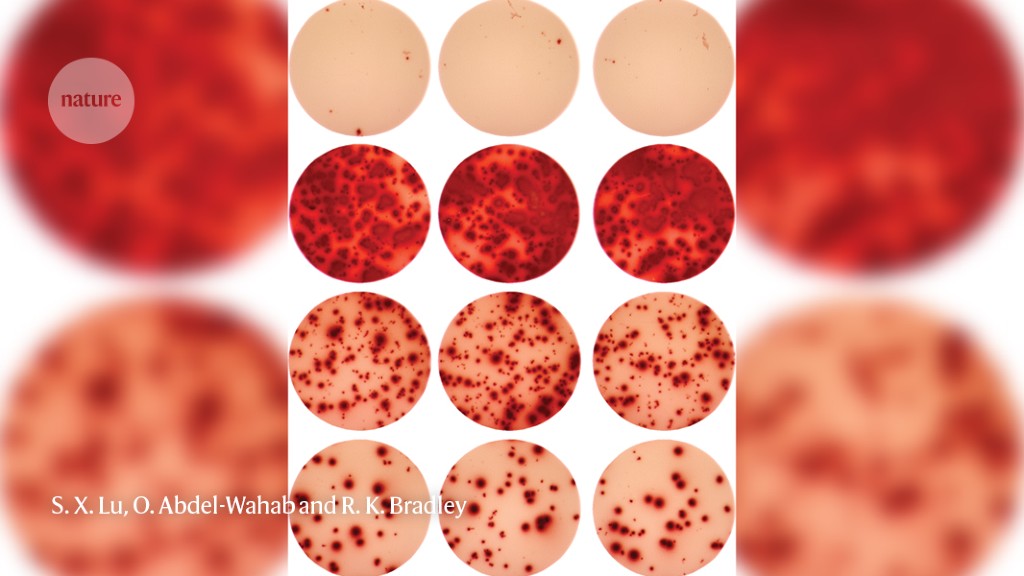Cancer
Experiments in mice show promise for drugs that modify the integral process called RNA splicing.
Drugs that alter how tumours’ RNA molecules are chopped up and stitched back together can enhance the effect of some cancer treatments, according to a study in mice.
Unusual proteins produced by cancer cells can sometimes trigger immune responses against tumours. To amplify such reactions, Omar Abdel-Wahab at the Memorial Sloan Kettering Cancer Center in New York City, Robert Bradley at the Fred Hutchinson Cancer Research Center in Seattle, Washington, and their colleagues, tinkered with the cellular process called RNA splicing, in which RNA molecules are cut and some of the fragments are rejoined. This produces a final RNA that codes for a protein. As a result, changes to the splicing process can boost the production of atypical protein sequences.
The team treated mice with compounds that alter RNA splicing, and found that this yielded a host of protein fragments capable of rousing immune cells called T cells. The treatment also slowed tumour growth and enhanced the effect of cancer drugs that boost immune responses against tumours.




More News
Randomized trials of cancer drugs are for yesterday
How antibody–drug conjugates aim to take down cancer
Turning tumours against themselves